Apollonia was a well-respected, consecrated virgin of advanced age, living in Alexandria. A Deaconess, she was honored as a leader of the Church in that area, and when anti-Christian uprisings began under the reign of Emperor Philip, an angry mob seized the saintly woman and other leaders of the Church.
First, Metras, an elderly man, was martyred. His eyes were pierced with reeds, and he was stoned to death. A woman named Quinta was next led to the temple, and encouraged to renounce her faith, sacrificing to the pagan gods. Upon her refusal, she, too, was stoned to death. The angry mob grew in fury and numbers, sweeping through the city, pillaging and destroying the homes of known Christians. Saint Apollonia’s home was among those destroyed, an act she accepted with joy, as she was being persecuted for the Lord.
She was then led outside the city by the mob. Despite her age, and her reputation for virtue and modesty, they beat her mercilessly, knocking out all of her teeth. A large fire was then built, and she was given a choice: renounce Christ and sacrifice to the pagan gods, or be burnt alive. Saint Apollonia was silent for a moment, as if contemplating her choice, and then inspired by the Lord, willingly walked into the fire, offering her soul to God.
Dionysius, Bishop of Alexandria, described the martyrdom of Saint Apollonia and others to Fabius, Bishop of Antioch:
“The persecution with us did not begin with the imperial edict, but preceded it a whole year. And a certain prophet and poet excited the mass of the heathen against us, stirring them up to their native superstition. Stimulated by him, and taking full liberty to exercise any kind of wickedness, they considered this the only way of showing their piety - to slay us. First, then, seizing a certain aged man, named Metras, they called on him to utter impious expressions, and as he did not obey, they beat his body with clubs, and pricked his face and eyes; after which they led him away to the suburbs, where they stoned him…”
“…Then with one accord, all rushed upon the houses of the pious, and whomsoever of their neighbors they knew, they drove thither in all haste, and despoiled and plundered them, setting apart the more valuable of the articles for themselves; but the more common and wooden furniture they threw about and burnt in the roads, presenting a sight like a city taken by the enemy. They also seized that admirable virgin Apollonia, then in advanced age, and beating her jaws, they broke out all her teeth, and kindling a fire before the city, threatened to burn her alive, unless she would repeat their impious expressions. She appeared at first to shrink a little, but when suffered to go, she suddenly sprang into the fire and was consumed.”
Following her willing martyrdom, the faithful collected fragments of her head and teeth from the ashes of her pyre. Today, her relics are believed to be held in several churches across Europe. Her head is in the ancient Basilica of Santa Maria in Trastevere at Rome. Her arms are in another old Roman church, Saint Lawrence, outside the wall; and part of her jaw is preserved in San Basilio also in Rome. There are teeth or pieces of them in churches at Naples, Volterra, Bologna. Antwerp, Brussels, Malines, Liege, and in five different churches in Cologne. A reliquary containing a tooth of Saint Apollonia can be found in Porto Cathedral, Portugal.
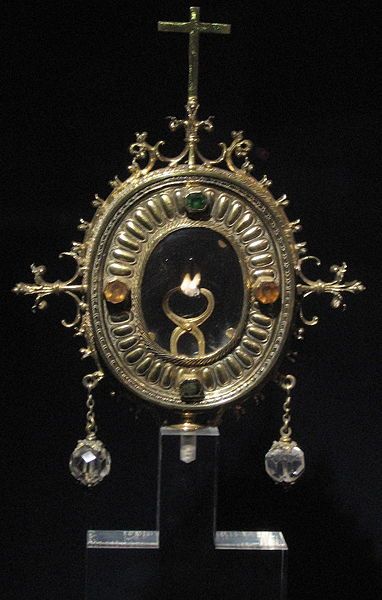 |
| Relic of Saint Apollonia's tooth |
In the early Church the examples of brave women like Apollonia were the basis for reflection on the equality of men and women by great theologians such as Saint Augustine of Hippo. While asserting the usual position that women were by nature subordinate to men in the order of things, Augustine argued that in matters of faith and the bravery shown in martyrdom men and women were equals and equally in God’s image and likeness. Further, some have, at times, likened the willing sacrifice of the early Church Virgins to suicide, rather than divinely-inspired martyrdom. Saint Augustine addresses this point in his work, City of God:
"But, they say, during the time of persecution certain holy women plunged into the water with the intention of being swept away by the waves and drowned, and thus preserve their threatened chastity. Although they quitted life in this wise, nevertheless they receive high honor as martyrs in the Catholic Church and their feasts are observed with great ceremony. This is a matter on which I dare not pass judgment lightly. For I know not but that the Church was divinely authorized through trustworthy revelations to honor thus the memory of these Christians. It may be that such is the case. May it not be, too, that these acted in such a manner, not through human caprice but on the command of God, not erroneously but through obedience, as we must believe in the case of Samson? When, however, God gives a command and makes it clearly known, who would account obedience thereto a crime or condemn such pious devotion and ready service?"
The Church looks to the sacrifice of brave martyrs—men and women—as “acts of heroic faith.” Rather than succumb to pressure from world leaders or angry mobs, these brave men and women stuck firmly to their beliefs, faith burning brightly to those present and those who later read their acts, and made the difficult choice to die in the light of Christ rather than live in the darkness of the world. We pray today for the courage and faith of these brave and pious early martyrs of Alexandria. Saint Apollonia, pray for us!
O God, who among the manifold works of thine almighty power hast bestowed even upon the weakness of women strength to win the victory of martyrdom : grant, we beseech thee ; that we, who on this day recall the heavenly birth of Saint Apollonia thy Virgin and Martyr, may so follow in her footsteps, that we may likewise attain unto thee. Through Christ our Lord. Amen.
Year 2: Day 40 of 365
Prayer Intentions: Courage and faith of the martyrs!
Requested Intentions: Reconciliation of a marriage (D); Assistance with a legal matter, financial freedom (R); Healing for a friend (M); For a son in medical school (H); Financial assistance (M); Successful employment (N): Freedom from mental illness for a friend (L); For successful marriage (N); For friends having and recovering from surgery; for the reduction of a brain tumor (L); For resolution of a housing crisis (P); For a brother who is struggling financially, for a son who is struggling academically (B); For financial security for a friend (C); Success in business; familial happiness and health (J); Health and recovery of a sister (I); Development of a chaste relationship pleasing to the Lord (E); Successful surgery of mother; delivery of daughters’ babies (L); For a friend suffering with depression (M); For a friend entering religious life (R); Success of a parish men’s retreat (H); For a mother who is grieving; for the soul of a dearly departed son (M); Reconciliation of a marriage (M); End to grief after death of son (B&C); End to grief (S); Successful marriage (N); For an RCIA candidate struggling with financial and family stressors (O); Freedom from anxiety regarding medical procedure (J); Return home of an ill mother, peace and financial security (J); Healing of a father following stroke (S).







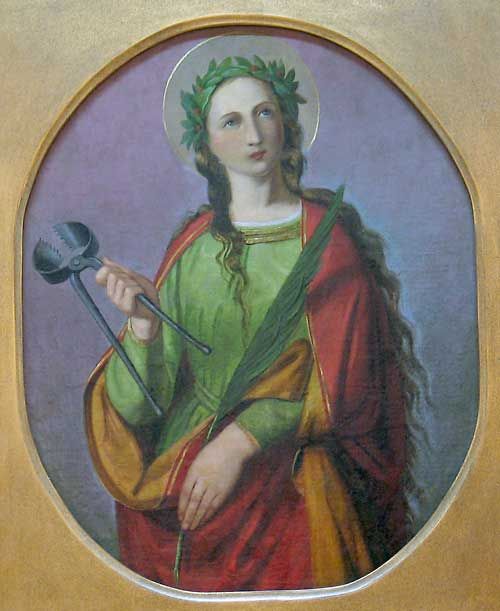

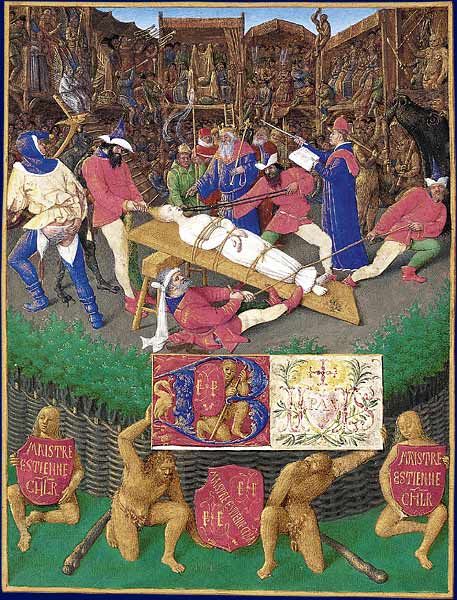
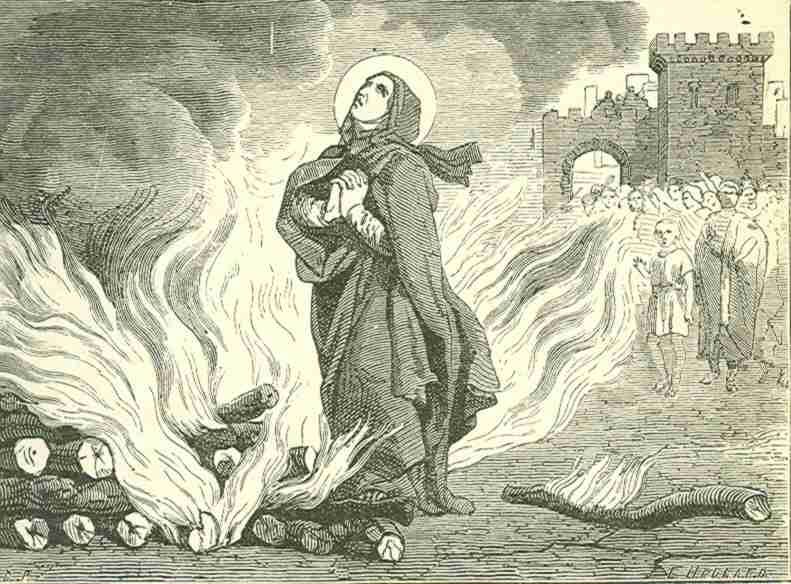
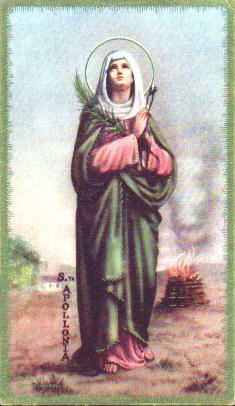
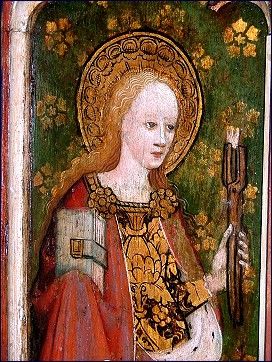
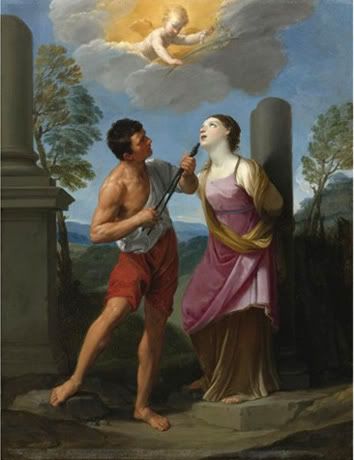
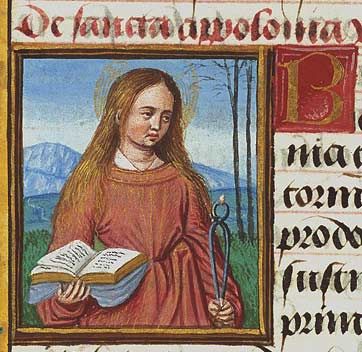
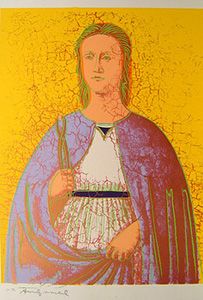
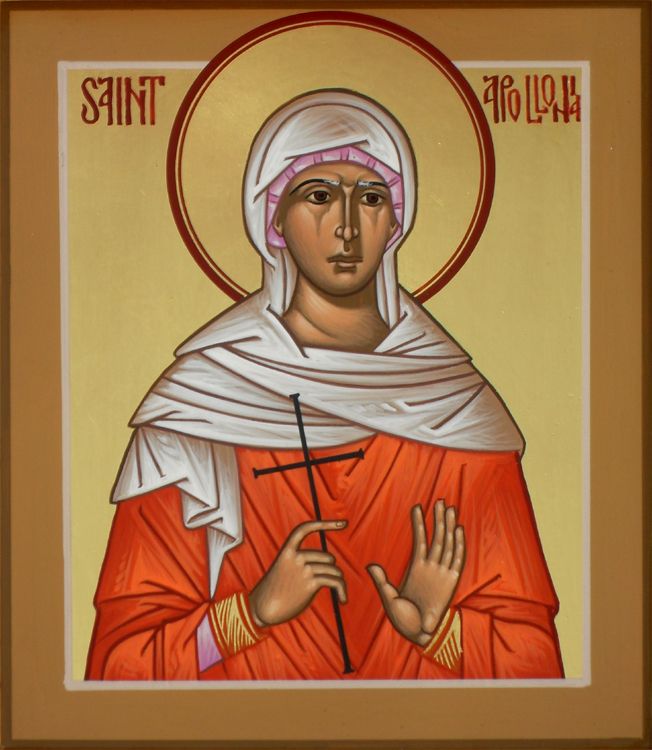

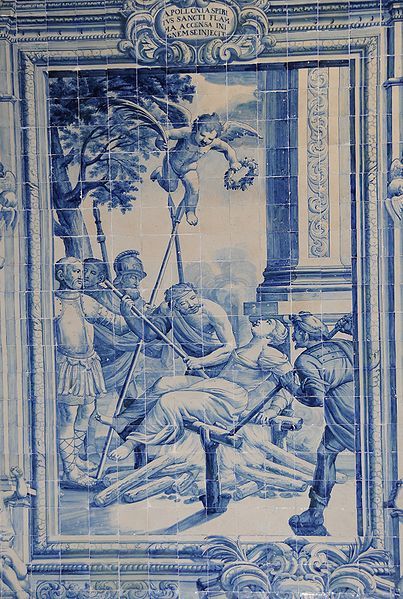

0 comments:
Post a Comment
Thanks for leaving a comment. If you wish to submit a prayer request, however, please do so above, using the "Contact" tab.